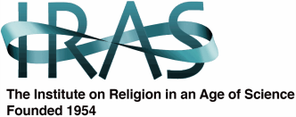NATURE, GOD & HUMANITY
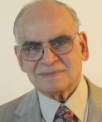
An Introductory Note
by V.V. Raman
The recent devastation caused by Hurricane Sandy is only one of countless instances where the frenzy and fury of natural forces: earthquakes, tornados, volcanoes, tsunamis and such have caused unimaginable havoc. Natural disasters are more ruthless than wars among nations since they are not only unprovoked but are also indiscriminate in the tragedies they inflict on people – mostly innocent human beings that include the young, the sick, the disabled, and the helpless. Even as the welcome rain falls and the brilliant sun shines for the good as much as for the bad, and the air is available for the noble as well as for the vicious, Nature’s reckless ruin victimizes one and all in a community, irrespective of ability or age, merit or malice.
To all appearances, the unexpected, unwelcome, and abominable outbursts of Nature result from random and chaotic shake-ups in the normal and orderly flow of things. And yet, the religiously inclined may legitimately ask why a benign and Almighty God seems to be quite indifferent to such events. It is difficult to talk about the human condition under those painful circumstances without invoking the notion of God. Some of our members are reflecting on the matter in this installment’s Perspectives below. I thank them for responding to my invitation to write.
Comments on their views may be posted in the IRASNET or IRASRN listserves.
nature, god & humans
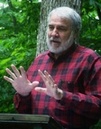
Michael Cavanaugh
The assigned topic immediately sends my mind to connect the first and third terms. Although one simply must start our story – that is, our history – with the Great Bang, my own tendency is to go straightaway to a later part of that history, namely evolution. And once you have evolution you have the possibility of brains, and in our history brains became a particularly important of our evolution. That's not to say that kidneys aren't important – they are – and I suppose one could write an interesting paper somehow showing that kidneys are relevant to a discussion of Nature and God and Humans. But from my perspective, the particular kind of human brain, that is a social brain, was absolutely necessary for the concept of God to have emerged. And above all I see God as a concept, one that is very persistent in general, but not particularly specific. Another way to say this is that the concept of God has emerged as an important "summary" (for want of a better word) of important parts of culture, of our social life. It is a different concept in different cultures, and at different times in the same culture.
Nowadays it has been argued (by Gordon Kaufman, for example) that our traditional concept of God has become dangerous, and I don't disagree with that. But to me the greater question is whether the discussions we need to have are best addressed in god-language or in more natural language. For our cosmology it seems to me that the language of physics is better (more efficient and efficacious) than god-language; for our health the language of medicine is better than god-language. For social life economics and sociology and political science and other disciplines provide better language than god-language to describe and discuss the dynamics we need to address. That doesn't mean I think god-language will disappear, but I hope current trends will continue diminishing its real impact.
who is in control?
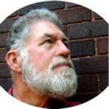
Jerald Robertson
Whenever a natural disaster like Sandy occurs, vested interests will quickly appear to blame it on some cause. Usually they site God, Nature or Homo sapiens. God is punishing humans for their sins or humans are causing bad things to happen. Nature gets a free ride in this blame game as impartial Nature is just doing what Nature does.
Religious fundamentalists like to use Nature as an agent of God. Of course they ignore the fact that natural disasters like earthquakes, hurricanes and tsunamis punish both the good and the evil equally. Its seems more fair to me if God were into punishing evil people he could send a thunderstorm and cast down lightning bolts to sap only the sinful. That would be more fair and just.
Devout environmentalists on the other hand like to blame “global climate disruption.” This new term is an upgrade from global warming and climate change. Global warming advocates are claiming that 2012 was a'new normal' in climate with “unprecedented” weather events. They point the finger at humanity for this disruption. However, the latest peer-reviewed studies negate the claims that the weather is more extreme or unprecedented. On all key measures, claims of extreme weather in our current climate fail to hold up to the scrutiny of the data.
So have we adopted a modern day paganism? Many primitive cultures had ‘climate astrology’ religious faiths. The belief that humanity is controlling climate is similar to ancient civilizations making sacrifices to the gods of Nature. The Salem witches were often accused of changing the weather. 'In the past, pagans sacrificed animals and even humans in vain attempts to placate capricious and cruel gods. Today they demand a reduction in carbon dioxide emissions' – Cardinal Pell
If we equate God to Nature, a form of Pantheism or religious Naturalism, then we can blame ‘God/Nature’ for what’s happening. If we consider humans as the advancement of Nature then ‘Humanity/Nature’ is responsible. If humanity is Nature becoming conscious as some have proposed, then Nature has found a way to become somewhat partial. On the other hand, Nature has always been partial – partial to what Nature says must be. Unfortunately we usually do not know what Nature will be; predicting weather past a couple of days is an audacious task.
UN climate chief Christiana Figueres has urged world governments to do something about extreme weather.
“We have had severe climate and weather events all over the world and everyone is beginning to understand that is exactly the future we are going to be looking about if they don't do something about it”
She neglected to mention “deaths due to extreme weather are radically declining, global tropical cyclone activity is near historic lows, the frequency of major U.S. hurricanes has declined, tornados have dramatically declined since the 1950s, droughts are not historically unusual nor caused by mankind, there is no evidence we are currently having unusual weather” – Climate Depot.
The U.S. is actually experiencing the longest-ever period with no strikes of a Category 3 or stronger hurricane like Sandy. Humanity may be affecting Nature but the data does not show it as yet.
If climate is changing and it always has, and if God is responsible for it, then there’s nothing we can do about it. If Nature is just being Nature, then there’s nothing we can do about it. If Homo sapiens are somewhat responsible for natural disasters, we can do something about it. But we have been causing wars throughout our history. Have we changed that?
Who or what is to blame for natural disasters?
Are we transitioning science now into paganism?
Is humanity inadvertently causing climate to change?
Are we becoming God?
These are very interesting questions!
god, nature & humanity

Jim Ketzel
Around 500 B.C.E, Heraclitus of Ephesus wrote his one and only philosophical work. In it he described what has since been called his Logos Doctrine. Briefly, the Logos Doctrine referred to what is essentially the structure of the universe itself. One of the aspects is that change is constant, everything changes, nothing stands still. Another is that this change is best seen in the process of moving from one state to another, hot to cold, or wet to dry to wet again. The process for change, then, is reversals from one state to another and back again. Another observation he made is that this Logos, or structure, is obvious, but no one sees it. Fire, he taught is the basis for everything, and, probably most importantly, he sees everything in the universe as interconnected, systems within systems, up and down and laterally. His philosophy became the basis for both the Cynic and Stoic philosophy schools. His teachings were also one of the inspirations for first-century Jewish philosopher, Philo. He says so explicitly.
In the mid-First Century C.E. Jesus taught, gathered disciples, was crucified, and, however one understands it, was raised from the dead. The Gospel writers, save for Matthew, understood and explained the events and developed Christian theology from the teachings of Heraclitus. This is most evident in the Gospel of John where he states the Logos doctrine in his prologue and then states that Jesus crucified and risen was the incarnation or personification of this Logos. This is a grand reversal, humiliating death to risen and ascended. Further, John stipulates that Jesus/logos did many signs that should have told people who he was, but no one understood them. For John, and for the remainder of the Gospels, save Matthew, the process of reversals is ubiquitous. It is the sinner, not the righteous who is saved, for example. It is by losing one’s life that one gains it. It is by becoming poor that one becomes rich. See, especially Luke’s version of the Beatitudes. Logos, then, in John was not an allusion to Genesis, nor was it a stand-in for Wisdom. New Testament commentators never seem to take into account what the terms used in the New Testament meant to First Century people. The books of the New Testament were written in Greek to a First-Century Greek audience. They would not have understood an allusion to Genesis, nor to Wisdom. Logos was a philosophical term that had been used in their culture for 500 years. They would have understood that meaning. Actually, the New Testament writers came by this worldview honestly. The direct influence of Heraclitus on the First and Second Century church in Smyrna is well-documented.
The influence in Ephesus would be a given; that is where the philosophy originated. Every one of the First and Second-century Christian Fathers, those who formulated the earliest Christian theology, either passed through or came from Smyrna and Ephesus. Ancient church tradition says that Ephesus was where the Gospel of John was written, where Luke’s author settled, and, interestingly enough, where Mary, Jesus’ mother settled. It was also Paul’s base of operation.
As for Paul, he was from Tarsus, which, in his day was by design and intent, THE center for Stoic teaching and for the propogation of Stoic principles. Most of the New Testament authors could not have avoided Heraclitus’ philosophy. This is what they were taught. That is how they thought. They lived it and breathed it.
In 1935, Albert Einstein, Boris Podolsky, and Nathan Rosen published a paper that purported to challenge Quantum Mechanics. In their paper they postulated that QM seemed to indicate that if two particles interacted, became entangled, then, it would seem, that if one is changed, the other would be too no matter how far apart they might be. They thought that to be silly. There had to be, therefore, some hidden variable that would account for it. At the least, they surmised that QM was incomplete.
spinoza's god or Nature and i

Dan Solomon
I grew up as a science buff and self-proclaimed "Jewish atheist." Still, I attended religious school, studied Hebrew and prepared for my Bar Mitzvah. I had doubts, but was blessed with a liberal, philosophical Rabbi. I told him that I didn't believe in God, though I felt a kind of religious awe for the beauty of the natural world and the laws of science. The rabbi replied, "Oh, you believe in Spinoza's God, which is the same as Nature; so did Einstein." This caught my interest, and when the rabbi went on to mention that Spinoza had been excommunicated, this rebellious preteen was hooked.
It was only years later that I actually read Spinoza's works, and decades later that I had any further connection with organized religion. Still, I carried this unarticulated sense of the sacredness of all reality, similar I think to the attitudes theists have towards God. Like Spinoza, I don't view this reality as any kind of a personal being. Unlike Spinoza, I prefer not to use the word "God" for what I understand to be all of reality. I'm fine with using "Nature" for that awesome, mysterious, infinite reality which I try to get a handle on via personal experience, scientific knowledge, and artistic expression.
However, my youthful love for nature and immersion in science reinforced my introverted lack of appreciation for personal relationship. To exaggerate only a little, it was just me and nature; other people were mere parts of the natural scene, to be valued just as all of nature's creatures, no more nor less. Eventually, though, I realized that I wasn't just plopped into this natural world as a self-made, self-contained individual. I've found it helps to leaven my Spinozism with the thoughts of Buber, as famous for his focus on the "I-Thou" relationship as Spinoza is for the ultimacy of "God or Nature." But, just as I don't share Spinoza's need to call nature God, I don't feel Buber's need to use that name in referring to some mystical source or focus of personal relationship.
Obviously, my material existence is dependent on the human culture in which I was raised. Even more important, my mental existence as a human being would be impossible without this culture. The language which allows me to express thoughts rationally is a product of social interaction. Human social interaction is in turn a product of the evolutionary process that made us the social beings we are. Just as I didn't come into this world self-contained, from nowhere, neither did humanity. This is where I find it useful to supplement Buber's anthropocentric emphasis with the natural embeddedness emphasized by Spinoza.
I'm happy to feel a part of a universe which only became personal with the evolution of humans and, possibly, some of our animal relatives. This doesn't mean that I don't appreciate poetic expressions of connectedness, using personifying metaphors. I've heard voices in a brook while backpacking in the wilderness, felt my dead brother walking with me in the woods, and even sung "Good Morning Starshine" to greet a pre-dawn sky. But these are feelings, however overwhelming, not expressions of belief that such persons are really out there. When I go beyond glibness, my "worship" or "communing with nature" is simply silent rapture.
Not being a poet, I'm no better at expressing my feelings about human reality than I am about natural reality. But the point is to live them, not talk about them. So, I'll leave it at that, except to conclude with some words of Einstein, which are better than anything I can come up with at the moment:
"A human being is part of the whole, called by us 'Universe'; a part limited in time and space. He experiences himself, his thoughts and feelings as something separated from the rest - a kind of optical delusion [sic] of his consciousness. This delusion is a kind of prison for us, restricting us to our personal desires and to affection for a few persons nearest to us. Our task must be to free ourselves from this prison by widening our circle of compassion to embrace all living creatures and the whole of nature in its beauty."
nature, god & humanity

Tanya Avakian
The theodicy question inevitably begins with nature. Whether or not we believe in God, we are situated in nature. Science uses a perspective that is self-consciously and deliberately restricted to what is known to be possible in nature with the available evidence. Today no theologian can avoid engaging with this standpoint without standing to one side of a world-view defined ever more by scientific knowledge. Naturalist philosophy considers the scientific standpoint to be normative, to different degrees. So there is no ignoring the question of whether human conceptions of good and evil are rooted in nature. According to today’s scientific perspective, they must be. We cannot put non-human nature in one category and human moral categories in another.
Whether the theodicy question is itself inevitable has been more open to controversy. The most common judgment on the part of naturalists, non-theists, and/or nontraditional theists has been that the theodicy question disappears if one does away with an anthropomorphic God who stands outside nature. If we associate questions of good, evil and justice solely with power, above all with a model of power based on human hierarchy, it would follow that one is not called to account by evil and suffering once that kind of power is no longer ascribed to God (and definitely not if no transcendent God exists). The only response required as a consequence would then be one that judges “this too is nature.” If natural disasters, severe accidents, and terminal illnesses occur, it is not due to God’s will but the random processes of nature acting with nobody in charge.
There are three problems with this answer, if it goes no further. One is that it separates natural from human evil in a way that is in contradiction to the naturalist foundations of the anti-theodicy viewpoint. That is, a hurricane is not evil if it kills hundreds or thousands of people, but a human being is evil if he or she does. Human nature is thus set outside of the rest of the natural framework, once again. Another is that it is identical in part to a theist answer that has been popular with liberal theologians: God is not responsible for suffering. God either leaves us to enjoy free will, or is literally without power to effect physical processes; but God is there with us as a comforter when we suffer. There would thus appear to be no grounds on which this answer could present itself as being inherently naturalistic, since we find this answer among a wide range of liberal theists—whose views on the degree to which God transcends nature run the gamut!
The final objection grows out of the second, and incorporates elements of the first two. While we are part of nature, a scientific perspective (and one at least open to naturalism) recognizes a distinction between nature and what we as humans would wish to read into nature. It follows that our desire to project positive qualities onto nature is as open to questioning as our desire to objectify nature as evil, because of the aspects of nature that are inconvenient for us. We must thus be suspicious of our desire to identify the positive aspects of nature with our sense of the religious, whether or not we identify that sense with anything outside nature or with an anthropomorphic being. Liberalism, naturalism, and/or non-theism do not excuse us from the essential conundrum of the theodicy question.
Our age of science might however help us to reframe it, liberating this most essential question from the limitations of an anthropomorphically powerful conceptualization of God. We may be inspired to understand the question as a question about our human nature. As human beings, we are driven to understand all of our experience in terms of relationship and attachments. It is quite literally natural for us to frame our connection to nature in terms of relationship, and thus to experience a sense of hurt in relationship when our rootedness in nature causes us pain. It is inevitable that our sense of the religious will also be shaped by a sense of natural reality as rooted in relationship. It will be challenged in that sense when physical reality is such as to make existence with consciousness appear irrelevant, let alone any positive or loving relationship to that reality. Therefore the theodicy question continues. An answer from an age of science might look just as closely at humans as it would at any abstract conceptualization of God or nature. If we have no choice but to respond to nature as we do, our best choice might be to reflect upon the roots of our response in our psychology as evolved beings. Then we might be in a position to discover the room for both joy and honesty in our consciousness within nature, and what the implications might be for our understanding of the religious.
Nature, god & humanity
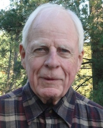
Lyman Page
For me, Nature and God are constructs generated by the human brain, a physical, biological product of natural origin, which is the human mind, soul, identity, and consciousness – without duality. Stanislas DeHaene (Reading in the Brain) presents a neuronal scenario for the process of learning to read, turning arbitrary, but familiar, marks on paper into phonemes that become a message. This seeming miracle of brainwork is accomplished by most human children given the chance to achieve it.
The same brain produced Religions and gods, often using heterocosms of varying literality. God provides agency for the occurrences experienced in Nature for which other agency is not known, standards of morality, and solace in trying times. God is often viewed in the context of a more-or-less structured religion compatible with the view of God. Nature is the inclusive word for what humankind views as “real:” i.e. sensed by human senses with or without augmentation by technology and/or philosophy, most particularly mathematics. This can lead to seeming overlap with religion, a crucial difference being that explanations of “natural” phenomena by other than religions (e.g. Science) are considered Theory (hypothetical) until verified by observation or experiment that satisfies the concept of “real,” alluded to above. Evolution was such a theory, which was stunningly supported by sciences that didn’t exist when it was proposed, such as molecular biology and plate tectonics, and is now a firm factual strut of biological Nature. The “Gaia Hypothesis’ is a naturalistic overview of earth with added Greek mythology, reminiscent of religion. Like string theory, it remains a hypothesis, unlike underlying confirmed findings in such sciences as meteorology, ecology and ethology.
Evolution has produced the human brain, which produces qualia, perhaps best simply defined as abstract essences of quality of beauty, ugliness, and wondrous accomplishments, like reading, etc. How this can be done is the “hard question,” considered an unclosed gap between Nature and what this brain can do. Debussy loathed the term “impressionistic,” used to describe his “Printemps,” perhaps because he felt impressionist painting to be imprecise, unlike his own work. But one Cezanne apple may have 60 brush strokes in it. Painters would probably disagree with Debussy’s distinction. This supports the idea that complexity is an attribute of qualia: mastery of the detail of a work of art affects one’s appreciation of it. Christof Koch has suggested (Consciousness) that complexity is important to forming qualia. Gary Kasparov, when consoled for losing to Deep Blue in chess by being told “it’s only quantitative,” replied “at some point quantitative becomes qualitative.” So it’s important to emphasize just how complex our brains are with some numbers, which become quite literally unimaginable. Koch’s 100,000 heterogeneous neurons under a square millimeter of cortex may have the capacity to carry 10,000 synapses each, yielding a total possibility of different pathways (assuming no physical constraints) of 105 x 104 = 109! [factorial]. Just the number 170! [which is as high as some software can calculate factorials] yields a factorial of 10306. This compares with 1060 hydrogen atoms in the universe or, calculating in your head, 1024 microseconds since the Big Bang. 109! is big-exponentially larger.
Four score years of observations, modeling, interpretation, etc have convinced science that earth’s climate is warming, with human agency contributing. Now we are locked in a global struggle over which, humans or their gods, affect and know more about climate. The stakes in this Pascalian wager, which includes whether or not knowledge can control behavior, are more than Pascal’s eternal happiness vs. torture. They could include Human extinction – a fate dominant species are prone to – vs. survival.
I wish to conclude with this poem:
THE HOMUNCULUS OF GOD
They’d buried dead before, wrapping them
In succulent fronds secured with vines, then
Laying each in a pit scooped out with flattened bones
Of musk ox or of antelope, cov’ring them, first with sand
And then the firmer loam.
Before the sand he threw in her awl, used daily for so many seasons,
Dully aware that she was gone, no more would be there in the night
With reassuring sounds and warmth and movement.
Then, stroking his sloping forehead, he saw,
With crushing desolation never felt through all th’ancestral eons,
That he himself would someday be in such a pit,
And even, vaguely, thought it would be comforting
If it were this one.
nature, god & humanity

Stan Klein
This month's topic "God, Nature, Humans" provides an awesome trinity. The topic is an IRAS membership chairperson's delight. It gives me a chance to advertise why IRAS is so special. Let's look at those three words. We know what humans and nature are, but God is used in enough different ways that it has developed numerous, inconsistent meanings. IRAS brings them together. We have religious naturalists who sometimes downplay humans as being special. We have religious humanists who sometimes downplay the science aspects. And we have regular religious folks and regular secular folks who are interested in bringing it all together. The interplay of these trinitarian aspects of our world is an IRAS specialty that is featured in every summer IRAS conference. An important aspect of a trinitarian worldview is how to deal with evil and suffering. In the last part of this essay I'll deal with disasters such as hurricane Sandy and last week's massacre of 20 first-graders and 7 adults in Connecticut.
The first step is to figure out how the three parts of a trinity are connected. Dualities are easier, since quantum mechanics provides many well-tested examples. I'll mention four Trinitarian approaches:
- Penrose's awesome triangle of the Platonic/Mental/Physical worlds that I translate for present purposes to God/Human/Nature, that matches the trinity of science. In his book, "The Large, the Small and the Human Mind" he discusses replacing "God" with Popper's "World III of culture". One problem with Penrose's trinity is that nowhere does he give guidance for dealing with topics like suffering.
- Science's emergence. One starts with nature. Humans are emergent from nature. God is emergent from humans. Many IRASians are Religious Naturalists (RNists). We can deal with disasters and suffering because we have one foot in science and one foot in religion. For me the bible of RN is Robert Mesle's book "Process Theology". He has chapters on: "God's Love and Our Suffering", "How God Acts in the World", "Jesus" and "Miracles". His next to last chapter "Process Naturalism" show that all the preceding chapters that originally sounded like regular religion are in fact compatible with Nature being all there is, bringing us to the last two trinities.
- Buber's I/Thou/It. For me this approach places the human mind (I) at one end and nature (It) at the other end, with God embodying the I-Thou relationships.
- Christianity's Father, Son and Holy Ghost. This trinity is nifty because it places Jesus, the human, between God and the holy quantum mechanics ghostlike laws of nature.
The scientists can give us facts about the consequences of our actions. But that isn't enough. As Einstein said: "Religion without science is blind and science without religion is lame". Religion, with or without God language, is needed to provide the I-Thou power of community that is needed by the 99% to make the world more livable. The next IRAS conference on "Scientific, Spiritual and Moral Challenges in Solving the World Food Crisis" provides an excellent example of how IRAS puts it all together. We humans are in the middle and we are the ones who have to figure out how to do God's work.
Copyright 2018 by The Institute on Religion in an Age of Science
